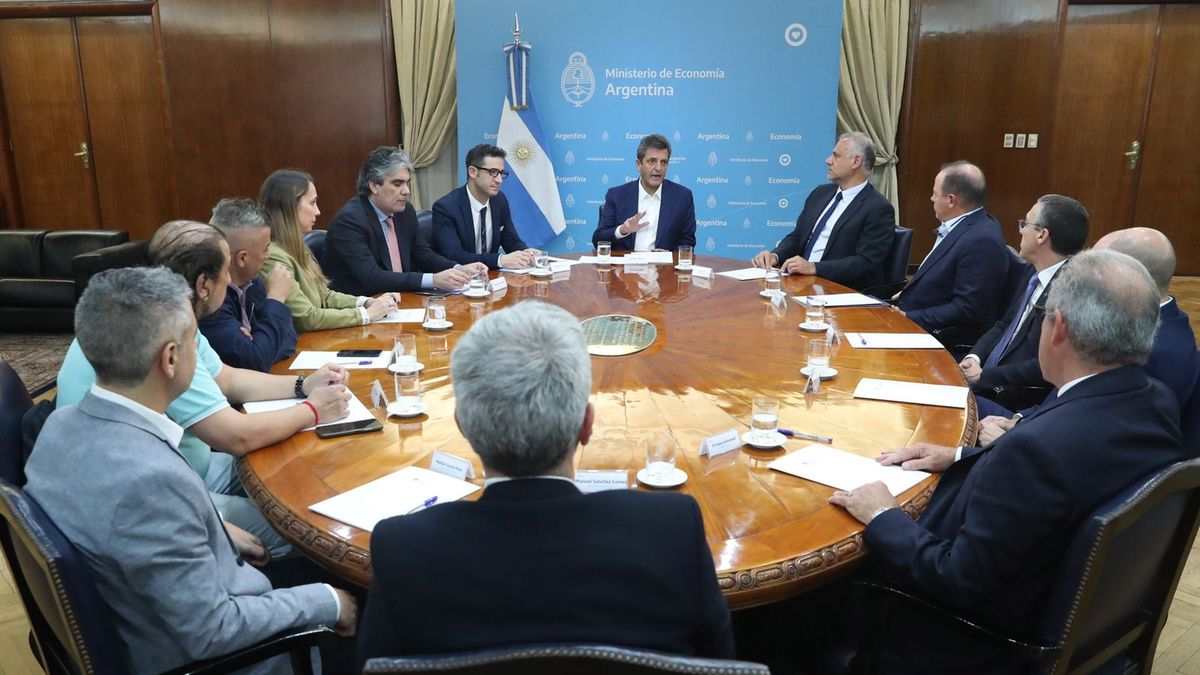Extension with flexibility
On June 27, the last week of Martín Guzmán as head of the Ministry of Economy, the Central Bank took new measures for imports. According to the entity of Miguel Pesce, it was for a quarter “to respond to the extraordinary needs of foreign exchange to meet the import of energy.”
Indeed, record energy imports peaked in July. After that month, where the Central Bank allocated the record of US$ 2,281 million for the “fuels and lubricants” category, in August almost US$ 900 million less were allocated, according to official sources. August closed with energy imports below US$1.4 billion.
The measure of the Central Bank proposed that for imports of goods with an automatic license, companies could access the official dollar for the equivalent of the monthly average of imports of 2021 plus 5%, or of 2020, plus 70%. For goods with a non-automatic license, access to the foreign exchange market became 180 days from dispatch to the market.
From the Government they refused to speak of “stocks”: they assured that those who exceeded should seek credit or finance themselves with their suppliers. This is what actually happened in some sectors that are strong demanders of foreign exchange, such as the automotive or electronics, although not without strong complaints about the difficulty and cost of external financing.
The measure was reflected in communication A 7532, which stated, with completion for September 30. As this newspaper learned, at this time the decision is to extend it, but not before beginning to make imports more flexible for some sectors and for some goods.
The flexibility criteria are not yet defined. What is clear is that they will start with key inputs so that production is not slowed down and therefore the generation of employment, especially in cases where there were strong increases in international prices, which caused the quota to be “exceeded”. Inputs necessary for export sectors will also have priority. In addition, it will be defined in the “micro” work that the Secretary of Foreign Trade, Matías Tombolini, has been carrying out in dialogue with the business chambers.
Massa revealed that in these meetings to “plan imports” it was possible to foreign exchange savings of US$817 million. After last week’s meetings with the automotive companies grouped in Adefa and the electronic companies grouped in Afarte, This month the meetings will continue, both with the chambers and “one by one” with the companies.
To what extent the faucet will be turned on will depend on “how Massa fares in the United States.” The official formally begins this Tuesday his first tour as economy minister. There he will try to attract financial dollars, through the IMF, IDB and World Bank, and investments for productive sectors, such as lithium, hydrocarbons and automobiles.
According to the information shared between the Ministry of Foreign Trade, Industry and the Central Bank, the restrictions on imports did not generate general closures of plants, although they did stop for a few days. A businessman told Ámbito that his factory works at 60%, because his input, an oil derivative, had a sharp increase in price, and that is why the quota was exceeded. In that case, he revealed that he did not advance with suspensions or dismissals, but instead cut hours worked.
One of the issues that the Government will look at when making flexibility is prices. According to economic analysts, one of the reasons that explained the historic inflation in July (7.4%), in addition to the jump in the gap and political uncertainty, were the restrictions on imports. Many of the companies changed the “replacement dollar”: they began to adjust the prices of imported goods to an exchange rate closer to the MEP (today at $275) than to the wholesaler ($140).
Source: Ambito
David William is a talented author who has made a name for himself in the world of writing. He is a professional author who writes on a wide range of topics, from general interest to opinion news. David is currently working as a writer at 24 hours worlds where he brings his unique perspective and in-depth research to his articles, making them both informative and engaging.




